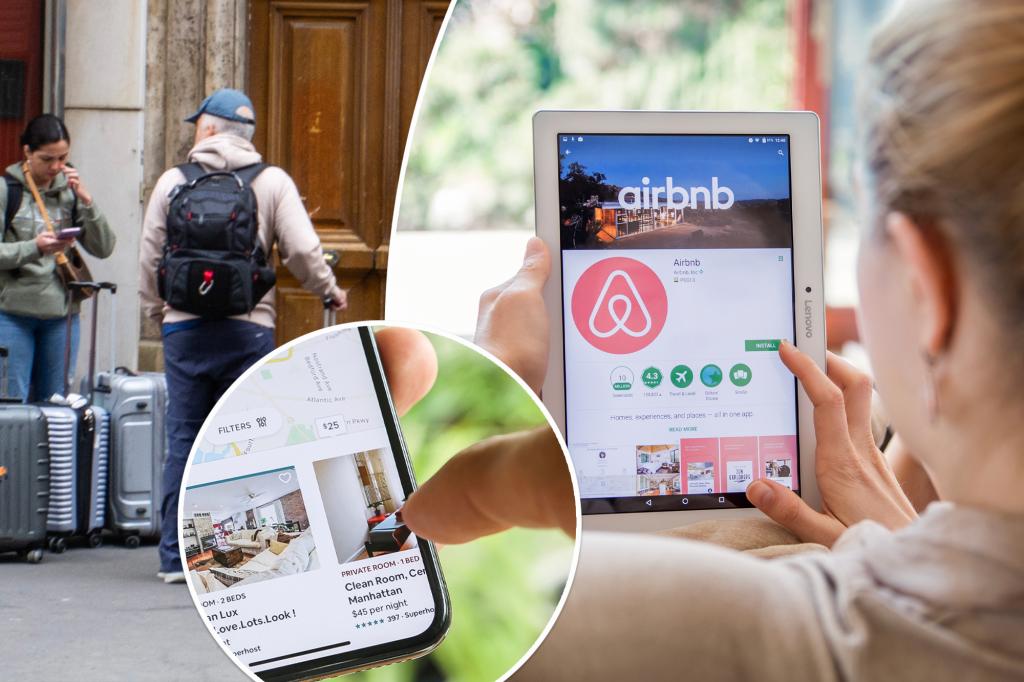Business
Behind the Reviews: The Dark Reality of Airbnb Scams

A new South African-authored book sheds light on how scammers exploit the trust economy on platforms like Airbnb with life-threatening consequences.
When Cape Town-based media scholar Julie Reid set out to understand just how far criminal activity had embedded itself into everyday digital platforms, she uncovered a chilling reality. Her latest book lifts the curtain on a dark underworld thriving behind what many still see as harmless vacation planning. From phony listings to fake reviews, Airbnb—one of the world’s most popular accommodation platforms, isn’t just a way to find a quaint loft in London or a seaside flat in Durban. It’s also, as Reid warns, “a digital playground for con artists.”
The Illusion of Safety
South Africans are no strangers to online scams, but Reid’s investigation reveals that the Airbnb ecosystem carries a specific kind of risk: one that feels safe because it looks legitimate.
“There’s a built-in trust mechanism on Airbnb,” she explains. “And scammers are exploiting that trust—at scale.”
In her book, Reid draws from over 600 global case studies—many harrowing—to show just how calculated and predatory these scams can be. Some guests arrived at ‘phantom listings,’ only to find that the property didn’t exist. Others were tricked into switching locations last minute through bait-and-switch tactics. And in the most disturbing cases, guests were physically harmed or held against their will in properties they were lured to via fake profiles.
Delusive Speech: The Scam You Don’t See Coming
Central to Reid’s thesis is the concept of delusive speech: a sinister cousin of disinformation, designed not to sway opinions but to deceive for financial or criminal gain.
She explains that this speech hides in plain sight on platforms we trust implicitly. Think slick photos, glowing reviews, and verified host profiles—all expertly crafted or faked using AI tools. The goal? Get unsuspecting users to hand over money or, worse, walk straight into dangerous situations.
Reid isn’t shy about pointing fingers. “The design of these platformsparticularly Airbnb—primes users to trust what they see. That’s a design flaw, not user error,” she says.
Airbnb’s Patchy Response
To its credit, Airbnb has systems in place, like machine learning to weed out fake listings, a Trust and Safety Advisory Coalition, and travel insurance for guests. But Reid argues that these measures are poorly enforced.
“Scammers can slip through the cracks using fake documents and aliases,” she says. “And the biggest red flag? Honest reviews by scammed guests are often censored.”
According to Reid, Airbnb’s opaque review system allows it to scrub negative experiences that could tarnish its brand, leaving future guests in the dark. Worse, she notes that even after being flagged, fraudulent listings often remain live.
A South African Lens on a Global Problem
Reid’s work hits especially close to home in South Africa, where online scams are a national concern. From banking fraud to fake e-commerce stores, digital deception is an everyday threat.
On social media, South Africans responded to early discussions of the book with both alarm and validation. One Twitter user posted, “I knew something was off when the Airbnb I booked in Joburg had identical reviews to one in Durban. We need tighter regulation.”
So, What Can You Do?
Reid urges travelers to practice “digital street smarts.” That means:
-
Verifying listings through Google Street View.
-
Asking trusted friends or colleagues for personal recommendations.
-
Booking directly with hotels when possible.
-
Avoiding third-party payment links outside of the platform.
“Always have a backup plan,” she adds. “And never underestimate the power of travel insurance.”
A Wake-Up Call for Big Tech
The problem of delusive speech isn’t unique to Airbnb. Reid’s book covers other platforms too from dating apps like Grindr and Tinder, to ride-sharing services like Uber and Bolt. The common thread? Platforms profiting from user engagement, while failing to fully safeguard that experience.
Her message is clear: trust shouldn’t be an interface feature, it should be earned.
As South Africans increasingly turn to digital tools for convenience, Reid’s warning couldn’t be more timely. We may live in the age of global connectivity, but behind every listing, swipe, or booking, there could be a scam waiting to happen.
“Scammers thrive where trust is assumed,” Reid writes. “It’s time we all got a little more suspicious online and off.”
Reader Tip:
If you’ve been a victim of a scam on a digital platform, report it to the South African Police Service Cybercrime Unit and also share your experience publicly (safely) to help warn others.
{Source: Moneyweb}
Follow Joburg ETC on Facebook, Twitter , TikTok and Instagram
For more News in Johannesburg, visit joburgetc.com


























